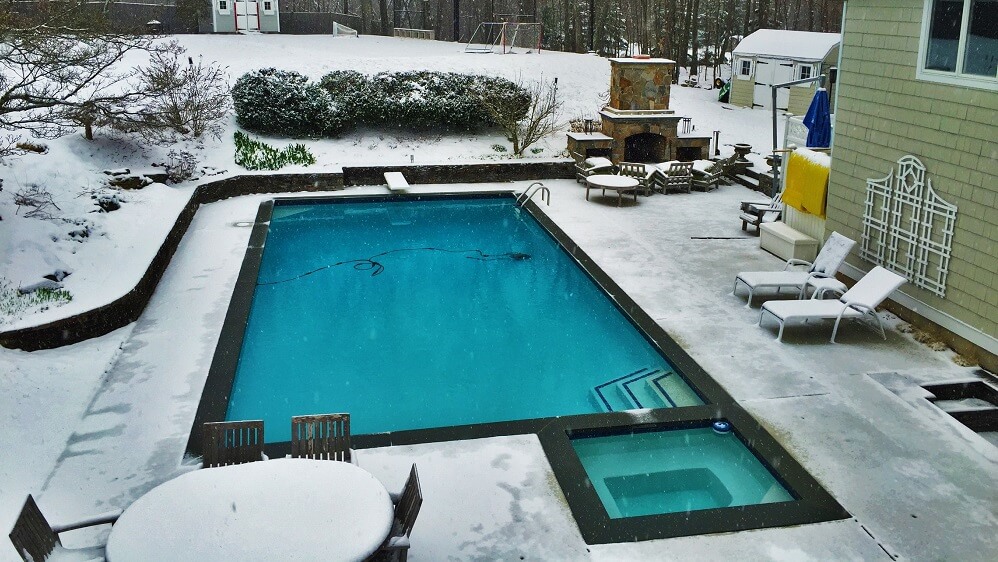3 Options for Heating Your Pool
In New England and other regions with short summers and plenty of chilly weather, heating your pool is a crucial way to extend the swimming season and ensure that the water is a comfortable temperature at all times. If you are thinking about adding a heater to your pool, there are a few main options available: heat pumps, gas heaters, and solar heaters. Each option carries pros and cons, and the right choice will depend on your needs and the setup of your pool.
Here is a brief overview to help you choose the best pool heating option:
- Heat pumps. If you’d like to keep your pool at a desired temperature throughout the year and you do not have an attached spa, a heat pump is probably the best option. Heat pumps work using an energy-efficient mechanism that transfers heat from the outside air into the water. In fact, they operate so efficiently that when sized properly and used regularly, they will likely pay for themselves over time. However, it’s important to realize that since heat pumps draw warmth from the outside air, they work best when temperatures are no less than 45-50 degrees Fahrenheit. Also note that they are the slower option for pool heating. They are a “set it and forget it” kind of pool heater. If you would like a faster type of heat, look at using a gas unit.
- Gas heaters. The main advantage of gas, or fuel-fired, heaters over heat pumps is that they can heat the water much more quickly and can maintain any desired temperature regardless of the weather. Therefore, gas heaters are the recommended option if there is a spa attached to your pool, since heat pumps would generally take too long to facilitate on-demand use of the spa (even if the manufacturer says they work for spas, in reality, they do not). While gas heaters are not as energy-efficient as heat pumps—and therefore can be more expensive to operate—the newest models are more efficient than their predecessors.
- Solar heaters. As the most energy-efficient option for heating your pool, solar heaters work by pumping water through a solar collector—which may either be installed on the roof of your home or on the ground—where the water is heated using the sun’s natural warmth before returning to the pool. While solar heaters are eco-friendly and relatively inexpensive to operate (and may qualify for a solar tax credit), they are costly to install and require more space than other types of heaters. In addition, since they are reliant on the sun, they will not work well on cloudy days—a significant drawback in the Northeast as they tend to make heat when we need it the least and no heat when we need it the most!
At Aqua Pool & Patio, we can help you select the most effective and efficient option for heating your pool so that you can enjoy a comfortable swimming environment whenever you’d like. Contact us today to get started!




